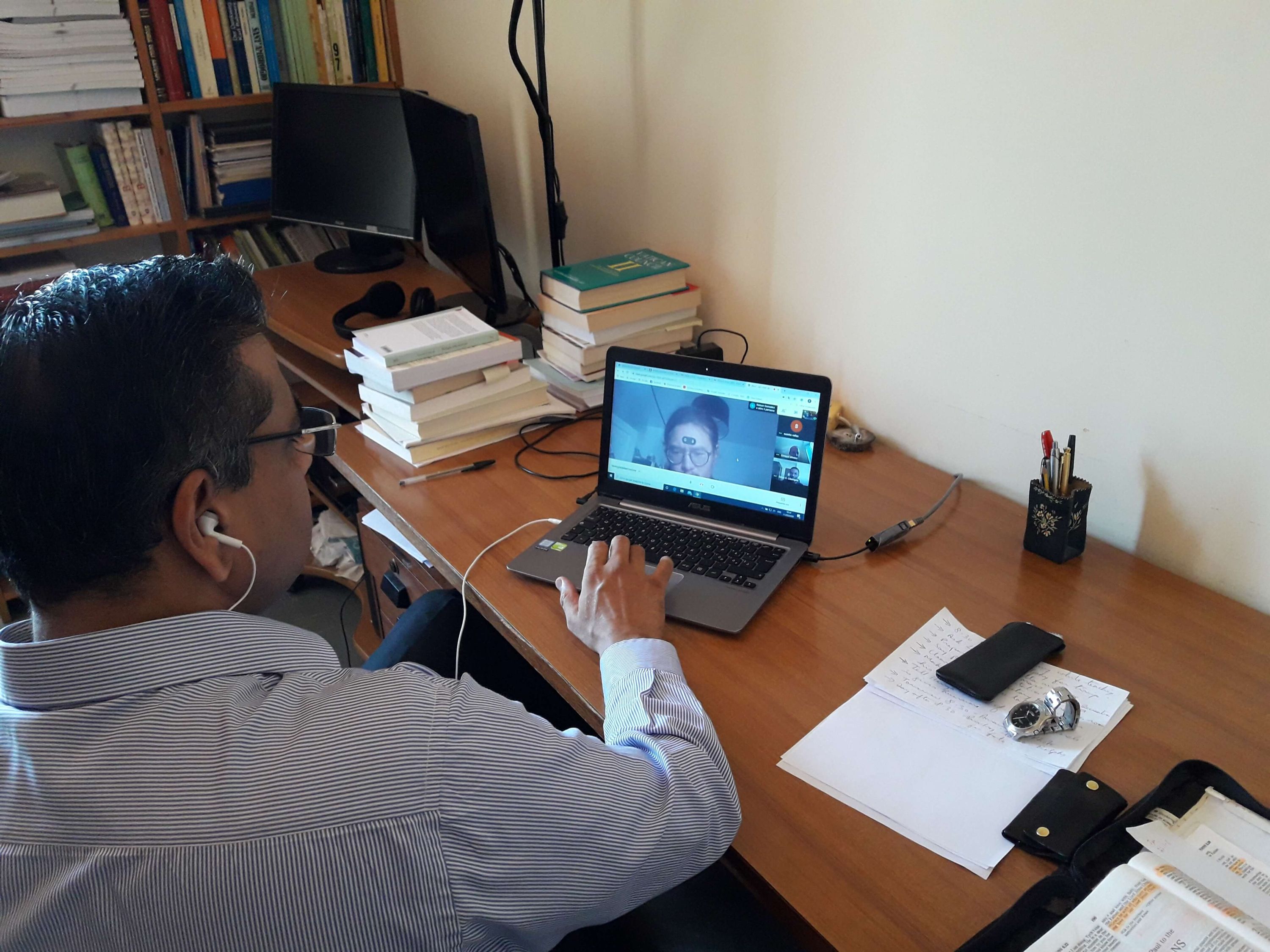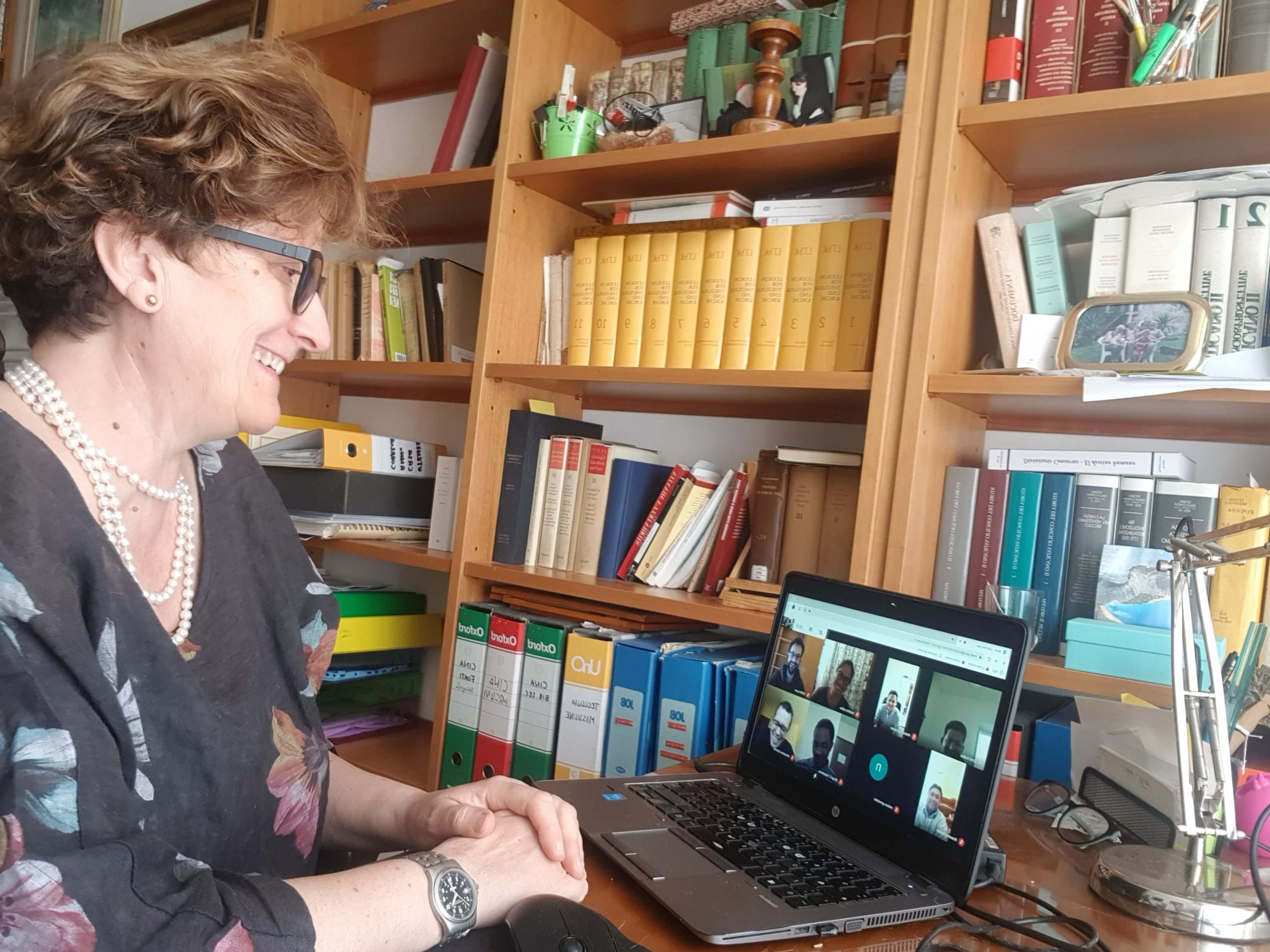 Already immediately after the start of the 'lockdown' in Italy (12 March 2020), the Faculty teachers activated the online mode of teaching from home, continuing the lessons of the second semester with their students, many of whom had arrived a few weeks ago in Rome. Compared to ordinary lessons in classrooms, distance teaching and learning immediately entailed the introduction of many innovations, involving a fruitful 'domestic' relationship between teachers and students.
Already immediately after the start of the 'lockdown' in Italy (12 March 2020), the Faculty teachers activated the online mode of teaching from home, continuing the lessons of the second semester with their students, many of whom had arrived a few weeks ago in Rome. Compared to ordinary lessons in classrooms, distance teaching and learning immediately entailed the introduction of many innovations, involving a fruitful 'domestic' relationship between teachers and students.
How?
- On-line teaching opens new spaces sheltered from external distractions in and out of the classrooms.
- The online teaching for the teacher meant reaching their students in the place where they live daily, participating more directly in their experiences and sharing more directly their anxieties and their problems, in a journey that has become humanly more fruitful.
- Online teaching has positively transformed interpersonal relationships, deepening them. The students learned to know their teacher better by meeting him/her 'at home', thus knowing something more about his/her world, his daily life, feeling paradoxically closer to him/her in a climate of greater empathy.
- As a direct testimony of many faculty teachers, training their students in lockdown time has often meant dedicating extra time to helping them humanly and spiritually to experience this time of isolation as a great opportunity for growth.
In the Faculty of Missiology, online teaching in lockdown time has also favored the use of multimedia sources, such as watching themed films, using open-access resources from libraries all over the world, projections of virtual didactic material.
Face-to-face teaching is certainly irreplaceable, however, in this time we are prepared for any eventuality.
 The Faculty of Missiology is ready to welcome new students for the next academic year by continuing to teach regularly. Not being able to predict how the health situation will evolve in the coming months, we want to ensure our students, both old and new, who, in case of emergency, would wish certain facilities for which the Faculty will offer:
The Faculty of Missiology is ready to welcome new students for the next academic year by continuing to teach regularly. Not being able to predict how the health situation will evolve in the coming months, we want to ensure our students, both old and new, who, in case of emergency, would wish certain facilities for which the Faculty will offer:
- to activate extra monographic courses on-line, both in French and English especially to meet the needs of foreign students who were unable to achieve sufficient command of the Italian language.
- to help those who are interested in the problems of the mission of the Church in the present world and who want to enroll for some online courses as guest students.
- to enhance the moments of seminar and tutorial exchange by promoting mutual knowledge.
- to record courses for those who, for reasons of time zone, could not follow the lessons in real time

 Already immediately after the start of the 'lockdown' in Italy (12 March 2020), the Faculty teachers activated the online mode of teaching from home, continuing the lessons of the second semester with their students, many of whom had arrived a few weeks ago in Rome. Compared to ordinary lessons in classrooms, distance teaching and learning immediately entailed the introduction of many innovations, involving a fruitful 'domestic' relationship between teachers and students.
Already immediately after the start of the 'lockdown' in Italy (12 March 2020), the Faculty teachers activated the online mode of teaching from home, continuing the lessons of the second semester with their students, many of whom had arrived a few weeks ago in Rome. Compared to ordinary lessons in classrooms, distance teaching and learning immediately entailed the introduction of many innovations, involving a fruitful 'domestic' relationship between teachers and students. The Faculty of Missiology is ready to welcome new students for the next academic year by continuing to teach regularly. Not being able to predict how the health situation will evolve in the coming months, we want to ensure our students, both old and new, who, in case of emergency, would wish certain facilities for which the Faculty will offer:
The Faculty of Missiology is ready to welcome new students for the next academic year by continuing to teach regularly. Not being able to predict how the health situation will evolve in the coming months, we want to ensure our students, both old and new, who, in case of emergency, would wish certain facilities for which the Faculty will offer: